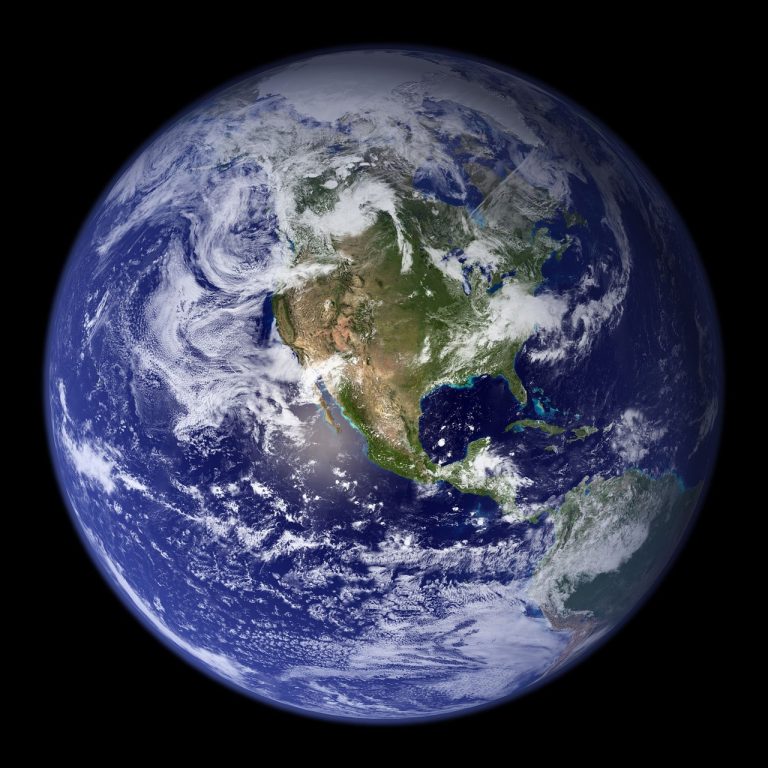
In a world where information travels at the speed of light, transformative global events are reshaping our understanding of reality. These aren’t just headlines; they are catalysts for change that challenge our conventional thinking. Ever wondered how a single event on the other side of the globe could ripple through your life? The interconnectedness of our modern society means that what happens in one corner of the world can have profound implications everywhere else. From the rise of social justice movements to the urgent call for climate action, each story is a thread in the vast tapestry of our shared human experience.
Consider the impact of technology, which has blurred the lines between nations, creating a global village where ideas and cultures collide. This global connectivity is not just about faster communication; it’s about understanding diverse perspectives that can enrich our own. As we delve into these issues, it becomes clear that our perspectives are not just personal; they are shaped by a collective consciousness that demands attention and action.
Moreover, as we explore the shifting dynamics of power on the world stage, it’s crucial to recognize how emerging superpowers are redefining international relations. The balance of power is in flux, and understanding these changes is essential for anyone who wants to grasp the complexities of our time. This is not just political jargon; it’s the reality we live in, where our daily lives are influenced by the decisions made thousands of miles away.
So, buckle up! The stories we uncover here are not just informative; they are transformative. They challenge us to rethink our views, engage with new ideas, and ultimately, take action. The world is changing, and so must we.
The Rise of Global Connectivity
In today’s fast-paced world, the advent of technology has interconnected nations like never before, creating a web of relationships that affects our daily lives in profound ways. Imagine waking up in New York and instantly communicating with someone in Tokyo or collaborating on a project with a team in Nairobi—all thanks to the internet! This phenomenon, known as globalization, is not just a buzzword; it’s a reality that shapes our economies, cultures, and even politics.
But what does this mean for us? Well, for starters, it means that our decisions can have ripple effects across the globe. When you buy a product, you might be supporting a small business in India or contributing to a factory in China. It’s a reminder that we are all part of a larger ecosystem. The implications for future generations are staggering. Will they be able to navigate a world where borders are increasingly blurred? Or will they find themselves facing challenges we can’t even imagine yet?
Furthermore, the rise of global connectivity has led to a cultural exchange that enriches our lives. We can now experience music, art, and traditions from every corner of the globe without ever leaving our homes. However, this interconnectedness also raises questions about cultural appropriation and the loss of local identities. Are we embracing diversity, or are we diluting it?
As we dive deeper into this interconnected world, it’s crucial to understand both the benefits and challenges that come with it. The following table highlights some key aspects of global connectivity:
| Aspect | Positive Impact | Negative Impact |
|---|---|---|
| Economic Growth | Increased trade opportunities | Job displacement in local markets |
| Cultural Exchange | Broader perspectives and ideas | Risk of cultural homogenization |
| Political Relations | Enhanced diplomacy and cooperation | Potential for global conflicts |
In conclusion, the rise of global connectivity is a double-edged sword. While it opens doors to new opportunities and experiences, it also challenges us to rethink our roles and responsibilities in this interconnected world. Are we ready to embrace the future, or will we cling to outdated notions of separation? The choice is ours.
Climate Change and Its Impact
Climate change is not just a buzzword; it’s a reality that affects every corner of our planet. As temperatures rise and weather patterns become increasingly erratic, the implications for our environment and society are profound. Have you ever considered how a simple change in climate can ripple through ecosystems, economies, and even our daily lives? The science is clear, and the evidence is mounting.
Recent studies reveal alarming trends. For instance, the IPCC (Intergovernmental Panel on Climate Change) reports that global temperatures have already increased by about 1.1 degrees Celsius since the late 19th century. This might sound trivial, but it has led to catastrophic consequences, including:
- Extreme Weather Events: Increased frequency of hurricanes, droughts, and floods.
- Melting Ice Caps: Rising sea levels threaten coastal communities.
- Threatened Biodiversity: Numerous species face extinction as their habitats change.
The impact of climate change extends beyond the environment. It poses serious threats to food security and public health. For example, changing climate conditions can affect crop yields, leading to food shortages and increased prices. Moreover, warmer temperatures can exacerbate health issues, contributing to the spread of diseases like malaria and dengue fever.
In response to this global crisis, nations are beginning to unite under various initiatives aimed at fostering sustainability. Agreements like the Paris Accord aim to limit global warming to well below 2 degrees Celsius, pushing countries to adopt cleaner energy sources and reduce carbon emissions. However, the question remains: are we moving fast enough?
As individuals, we can also play a part in this fight against climate change. Simple actions, such as reducing energy consumption, opting for public transport, and supporting renewable energy initiatives, can collectively make a significant difference. The time for action is now, and the future of our planet depends on it.
Shifts in Global Power Dynamics
In today’s world, the balance of power is shifting like never before. The rise of emerging economies is challenging the traditional dominance of established superpowers, creating a new landscape that demands our attention. Have you ever stopped to think about how these changes affect your daily life? From the products we consume to the news we read, the influence of these nations is everywhere.
Countries like China and India are not just growing economically; they are also increasing their political clout on the global stage. This transformation is reshaping alliances and rivalries, leading to a complex web of interactions. For instance, consider the recent trade agreements and diplomatic efforts that have emerged. These are not just about economics; they are about strategic positioning in a rapidly changing world.
Moreover, the rise of technology is playing a crucial role in these shifts. With advancements in communication and transportation, nations can now collaborate and compete more effectively than ever before. This has led to a new era of global diplomacy, where power is not solely determined by military strength but also by innovation and economic prowess.
To illustrate this point, let’s take a look at some key players in the current global power dynamics:
| Country | Key Strengths | Global Influence |
|---|---|---|
| United States | Military, Technology | High |
| China | Economy, Manufacturing | Increasing |
| India | Demographics, IT Services | Growing |
As we witness these transformations, it’s essential to consider the implications for international relations. Will we see a more cooperative world, or will competition lead to conflict? The answers are not clear, but one thing is certain: these shifts are not just political; they are personal. They affect how we view our place in the world and our role in shaping the future.
The Evolution of Social Justice Movements
In recent years, the world has witnessed a remarkable surge in social justice movements that challenge age-old inequalities and demand systemic change. These movements are not just fleeting trends; they represent a profound shift in how we view justice, equity, and human rights across the globe. Just think about it: what was once whispered in the shadows is now echoed in the streets, with millions standing up for what they believe is right. The power of social media has amplified these voices, allowing grassroots campaigns to gain momentum and reach a global audience.
From the Black Lives Matter movement in the United States to the #MeToo campaign that has resonated worldwide, these initiatives have sparked conversations that were long overdue. They have not only raised awareness but have also led to tangible changes in policies and societal norms. For instance, legislative reforms have been implemented in various countries, addressing issues such as police brutality, gender inequality, and racial discrimination. It’s fascinating to see how a hashtag can ignite a movement, isn’t it?
Moreover, the evolution of these movements is characterized by their intersectionality. Today’s activists recognize that various forms of oppression are interconnected. A movement focused solely on one issue often overlaps with others, creating a powerful coalition for change. This interconnectedness is crucial for fostering a more inclusive society. To illustrate, consider the following table that highlights key movements and their focus areas:
| Movement | Focus Area |
|---|---|
| Black Lives Matter | Racial Justice |
| #MeToo | Gender Equality |
| Climate Justice | Environmental Equity |
As we look to the future, the evolution of social justice movements will undoubtedly continue to shape our world. With each protest, tweet, and conversation, we inch closer to a society that values equity and inclusivity. So, what role will you play in this ongoing journey toward justice?
Technological Innovations Reshaping Society
The world is undergoing a transformative shift thanks to remarkable technological innovations. Think about it: just a few decades ago, the idea of having a computer in your pocket was pure science fiction. Now, smartphones are ubiquitous, connecting billions of people across the globe. This interconnectedness is not just a convenience; it’s a game changer, reshaping our social interactions, economies, and even our political landscapes.
One of the most exciting developments is the rise of artificial intelligence (AI). AI is not just about robots taking over jobs; it’s about enhancing our capabilities. From virtual assistants like Siri and Alexa to sophisticated algorithms that predict consumer behavior, AI is revolutionizing how we live and work. Imagine a world where your car drives itself, or where personalized medicine is tailored specifically for your genetic makeup. These innovations are not just dreams; they are becoming our reality.
Moreover, the push towards renewable energy is another critical area where technology is making waves. As we face the dire consequences of climate change, innovations in solar and wind energy are becoming essential. For instance, the cost of solar panels has dropped significantly, making them accessible to more households. This shift not only helps the environment but also fosters economic growth by creating new jobs in the green energy sector.
However, with these advancements come ethical dilemmas. As we embrace these technologies, we must ask ourselves: At what cost? Issues of privacy, security, and the digital divide are more pressing than ever. As society becomes more reliant on technology, we must ensure that progress does not come at the expense of our fundamental rights.
In conclusion, while technological innovations are undoubtedly reshaping our society in profound ways, it is essential to navigate this landscape thoughtfully. The future holds immense potential, but it is up to us to harness it responsibly and inclusively.




